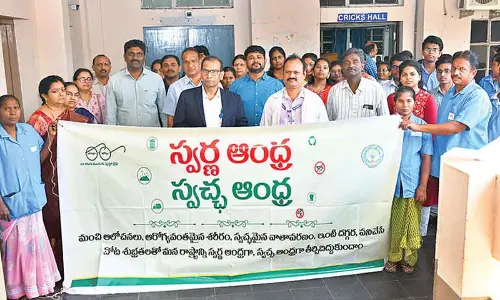If Getting Fat, Lets Not Blame Ageing

You\'ve probably heard that once you hit 40, it\'s all downhill when it comes to your weight issues. That inexplicable force we call our metabolism does begin to grind a bit slower every year from age 30 onward.
You've probably heard that once you hit 40, it's all downhill when it comes to your weight issues. That inexplicable force we call our metabolism does begin to grind a bit slower every year from age 30 onward.
Here's the good news the rate at which your metabolism slows down is actually rather minimal. In reality, most weight gain that happens in midlife isn't the result of slower metabolism at all. Instead, it comes down to a simple but changeable truth: as we get older we get less active.
How your body burns energy
Our resting metabolic rate is a measure of how much energy we expend or burn when we are at rest. It's determined by a combination of factors, including height, sex and the genes you got from your parents, and it can't be altered much, no matter what you do l.
When we are eating, we burn a small number of calories this is called the thermic effect of food. We can turn up the heat on this process a tiny bit by doing things like drinking stimulant beverages like coffee and eating large amounts of proteins.
Instead, Get Active
Unsurprisingly, the most important calorie burning activity we engage in is just that activity. Whether we're taking the stairs, stepping away from our desks for coffee, or sweating it out in a hot yoga class, we’re expending energy. Researchers call this second phase physical activity expenditure.
After a strenuous workout, we continue to burn more calories than we would while at rest and thats the third phase, or called excess post exercise oxygen consumption.
Be Mindful About Eating
According to NIH, in addition to getting less active as we get older, we also appear to become less perspective about our body's nutritional needs over time. Our natural appetite control mechanism seems to dull.
A good way to be more mindful of how full you're getting is to eat smaller meals and get more only when you're still hungry, rather than sitting down with a large plate of food, which might encourage you to overeat.
As you age, stay physically active, and eat mindfully. Diet needs to be the most important critical focus.











